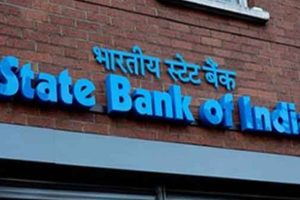As Finance Minister Nirmala Sitharaman holds a review meeting with heads of Public Sector Banks and Regional Rural Banks on Monday, the State Bank of India (SBI) in its latest report noted that the belief that the deposit growth in the banking sector is flagging is just a statistical myth.
However, the report highlighted that, while it’s true that credit growth has outpaced deposit growth in recent years, leading some to trumpet this as a sign of decelerating deposit activity, a deeper analysis reveals a different story.
The report highlighted that in FY23, the banking sector, particularly All Scheduled Commercial Banks (ASCBs), registered the highest absolute growth in both deposits and credit since 1951-52.
Deposits grew by an impressive Rs 15.7 lakh crore, while credit expanded by Rs 17.8 lakh crore, pushing the incremental Credit-Deposit (CD) Ratio to a staggering 113 per cent. The momentum continued into FY24, with deposits rising by Rs 24.3 lakh crore and credit by Rs 27.5 lakh crore.
Despite the narrative suggesting a slowdown in deposit growth, the data tells us otherwise. Since FY22, incremental deposit growth has actually outpaced incremental credit growth, with deposits increasing by Rs 61 trillion compared to Rs 59 trillion in credit.
“Decadal Deposits have expanded by a sharp 2.75 times, but Decadal credit expanded by 2.8 times since FY22, deposits expanded Rs 61 trillion vis-a-vis credit expansion at Rs 59 trillion,” said the report.
The report noted that the key issue at play here is not the quantum of deposits but the pricing. Historical trends have shown periods where credit and deposit growth diverge for 2 to 4 years.
“The myth of a flagging deposit growth appears as just a statistical myth with credit growth outpacing deposit growth being tom-tommed as a deceleration in deposit growth” said the report.
According to a Reserve Bank of India (RBI) study, as of June 2024, we are in the 26th month of this divergence, with predictions indicating that the cycle could end between June and October 2025.
“The end of the divergence cycle could be June 2025 -October 2025” the report noted.
The report also added that once this divergence ends, deposit growth is expected to pick up, while credit growth could slow significantly, signaling the beginning of a rate reversal cycle and a potential economic slowdown.
Another noteworthy trend in the banking system is the decline in CASA (Current Account Savings Account) deposits.
The report stated that the CASA deposits fell to 41.0 per cent in FY24 from 43.5 per cent in FY23, largely due to a decline in SB (Savings Bank) deposits.
This decline, while somewhat aligned with pre-pandemic levels of 42 per cent, reflects a shift in how SB deposits are being used.
Increasingly, SB deposits are being used primarily for transactional purposes, particularly UPI transactions, leading to greater movement across the banking system and raising concerns about the stability of SB deposits.
Moreover, the rising returns on term deposits have been driving a significant compositional shift in bank deposits. The share of term deposits in total deposits has increased to 59.0 per cent in FY24 from 56.5 per cent in FY23, while the share of CASA deposits has continued to decline.
The report said that this shift is a natural response to the increasing interest rate environment, as funds move from low-interest CASA accounts to higher-yielding time deposits.
On an incremental basis, term deposits accounted for nearly 78 per cent of the total deposits in FY24, underscoring the impact of higher interest rates on deposit behavior.
In conclusion, while the myth of declining deposit growth may persist, the reality is more nuanced. Deposit growth remains strong, with term deposits taking a larger share of the pie as interest rates rise.




